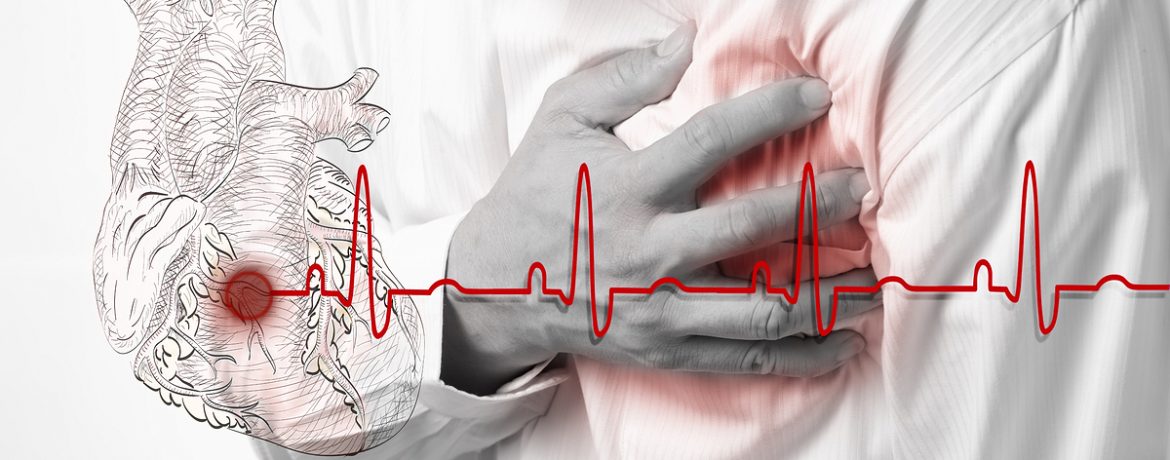Heart attacks have become one of the most common health concerns in every household. Lack of knowledge can trigger a more serious condition and make the situation worse even if a patient suffers a mild heart attack.
But when does it happen exactly? A person suffers a heart attack when the normal blood supply to the heart is interrupted.
Just like other organs and tissues in your body, the heart too needs a consistent supply of blood rich in oxygen. Due to insufficient supply of blood to your heart, the cardiac muscles may get badly damaged and start to wear out. If the condition is not treated immediately, heart muscles may suffer an irrevocable damage. As a bigger portion of the cardiac muscles get affected, the heart ceases to beat and that is the exact moment when a victim gets a heart attack.
A scientific explanation of heart attack would be Coronary Heart Disease (CHD). In this condition, little deposits of cholesterol called plaques block the arteries. A heart attack may happen when a blood clot produced by a ruptured plaque blocks the flow of blood in the arteries.
Risk factors may trigger a heart attack:
- Smoking: Did you know that nicotine and carbon monoxide put a lot of stress on the heart by forcing it to work faster? This, in turn, accelerates the risk of blood clots. Besides, the presence of different chemicals in the smoke injures the lining of your coronary arteries. It is estimated that smoking can enhance heart risk by 24 percent.
- High blood pressure: Hypertension tends to deteriorate the coronary arteries, thus making them absolutely vulnerable to CHD. Hence, a person with high blood pressure is at a high risk of heart attacks and CHD.
- Diabetes: When blood glucose levels associated with type 1 and type 2 diabetes increases, there is a certain amount of damage to the victim’s coronary arteries. As a result, the risk of CHD increases.
- Obesity: People who are obese or are highly overweight may not be directly at risk of a heart attack, but they are at a greater risk of developing hypertension and diabetes. Overweight individuals also tend to have high cholesterol level that results from eating fat-rich diet.
LOOKING FOR HEART HOSPITALS? TO GET EXPERT SECOND OPINIONS, VISIT OUR WEBSITE: WWW.LYFBOAT.COM
- Alcohol: Uncontrolled consumption of alcohol can develop high cholesterol levels and high blood pressure, thus augmenting the risk of CHD. Also, heavy drinkers tend to follow unhealthy lifestyles such as physical inactivity, consumption of high fat-diet and smoking.
- Family history: If you have an immediate relative with a history of heart attack, then your chances of getting a stroke or heart attack doubles up in comparison to the general population with no immediate family history of a heart attack.
- Age and Sex: With age comes greater risk of a heart attack and CHD. In addition, research suggests that men are at a greater risk of suffering from a heart attack than their female counterparts.
- Intense outbursts of anger: Sudden and intense bouts of anger may also trigger a heart attack. In fact, it is estimated that there is an 8.5 times more tendency for a heart attack to occur within the initial two hours of an anger outburst.
- Cold climate: Colder temperatures may constrict the arteries. This, in turn, raises the blood pressure, which is again a factor that may trigger a heart attack.
- Miscellaneous factors: Acute anxiety and strenuous physical exercise may sometimes increase the pace at which the heart beats and the blood flow in the arteries. This may trigger a heart attack in rare cases. In addition, high binging of excessive junk food can escalate cholesterol levels in your arteries that eventually increase your heart rate, culminating into a heart attack.
This is the reason why one must be aware of the reasons that trigger a heart attack and try to evade the situation with awareness.


 proccessing your request...
proccessing your request...
Comments